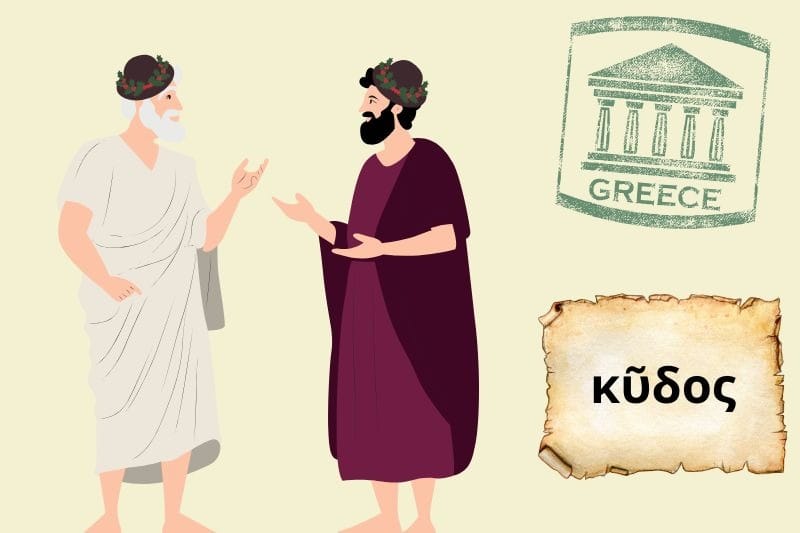Kudos to you meaning, synonyms and benefits
In this article, we’re going to explore the meaning of “kudos”, its synonyms, benefits, and how important it can be in the workplace. Let’s start right now with Kudos meaning!

Hi there! Ever heard someone say, ‘Kudos to you!’, or ‘I got kudos for a project I did’? If it left you wondering what they meant then this article will clear it up for you. It's actually a pretty powerful way of giving praise and recognition in the workplace (and in life). Here you can learn how to use it correctly, and what benefits it has.
Quick Overview
Kudos means praise, and while English speakers used it as a slang word, it originated from the Greek word, ‘kydos’ which means glory, praise, or honor. In ancient times it was associated with significant achievements, and that’s how it found its way into the modern language.
Table of Content
- What does kudos mean?
- What are the synonyms for kudos?
- What are the benefits of kudos?
- Why understanding the kudos definition improves recognition
- Considering the origin of kudos
- How can you introduce a kudos-giving initiative in your organization?
- Conclusion
- Frequently Asked Questions

What does kudos mean?
The term “kudos” is used to convey public praise, congratulations, or commendation for someone's achievements or efforts.
“Kudos” is a term of Greek origin that means “to offer praise” or “recognition” for an achievement or a job well done. When you give someone kudos, you are acknowledging and praising their accomplishments.
Note that despite the “s” at the end, “kudos” is a singular noun but is often misinterpreted as a plural noun. The proper way to use it in a sentence is, for example, “She earned kudos for her work,” not “She received a kudo for her work.”
What are the synonyms for kudos?

There are five main synonyms for kudos: Acknowledgment, Recognition, Praise, Appreciation, and Gratitude. Let's look at each of them in detail!
- Acknowledgment refers to the act of showing that one has noticed, accepted, or recognized something or someone. It often relates to the acceptance of the existence, validity, truth, or fame of something.
- Recognition is the identification or acknowledgment of something or someone's existence, validity, or achievements. It can involve publicly honoring or rewarding a person for their hard work.
- Praise is the expression of approval, admiration, or compliment towards someone's actions, characteristics, or achievements, often aimed at raising the individual's morale or confidence.
- Appreciation involves recognizing and valuing someone's efforts, qualities, or achievements. It is an expression of gratitude or thankfulness for what someone has done or contributed.
- Gratitude is the quality of being thankful and showing readiness to show appreciation for and to return kindness. It is a warm, genuine, and positive feeling towards someone who has made a big impact or benefited you in some way.
While all these terms relate to valuing or acknowledging someone or something, they vary in their focus, formality, and the range of expressions they encompass. Kudos is a more specific, informal way of giving praise or recognition, whereas the other terms can be broader and more varied in their application.
What are the benefits of kudos?
Kudos are part of employee recognition, which is integral to employee engagement. As we have already seen in a previous article dedicated to creating a company culture of recognition, here are the two main benefits of sending kudos messages regularly:
- A boost in employee performance, productivity, and engagement (14% higher in companies with recognition programs).
- A decrease in turnover cost (see our calculator here).

Why understanding the kudos definition improves recognition
Kudos hold significant value in business as they foster a positive work environment and contribute to employee motivation, satisfaction, and overall well-being. In a report by AIHR, recognition and rewards emerged as one of the key drivers of employee engagement.
By offering acknowledgement and appreciation for good work, kudos serve to validate employees' efforts, reinforcing their sense of purpose and making them feel appreciated.
Simple acknowledgment or compliment can promote mutual respect and camaraderie, fostering a collaborative and supportive work atmosphere.
Kudos also serve as an informal feedback mechanism, providing employees with immediate and positive reinforcement.
Considering the Origin of 'Kudos'

When it comes to the word "kudos," opinions on the importance of its origin can vary greatly. For some individuals, knowing the etymology of words enriches their use and understanding, adding a layer of historical and cultural significance. For others, the practical application of a word in everyday speech or professional environments holds precedence over its origin.
'Kudos' is commonly used in various contexts—from casual conversations to academic settings and corporate communications—to acknowledge praise or renown. This widespread usage is largely independent of the word's etymology. Therefore, whether or not the origin of 'kudos' is precisely established doesn't significantly impact its functionality or popularity in modern language.
In essence, while the etymological roots of 'kudos' might be an interesting tidbit for language enthusiasts and scholars, it does not diminish the word's effectiveness in conveying praise. The focus, for most practical purposes, remains on the intent and context in which 'kudos' is employed rather than its linguistic history.
Alternative Theories about the Origin of "Kudos"
Several alternative theories attempt to explain the origin of the word "kudos." One popular suggestion is that it derives from the Japanese word "kudasai," which translates to "please," "excuse me," or "I beg your pardon." However, there isn't credible evidence to support this theory.
Another potential origin is its use as an abbreviation of "Kudosu," a virtual currency on the website Osutalk. Moderators on the site distribute Kudosu to users as a reward for quality posts. While this might seem plausible at first glance, it is unlikely since Osutalk was not established until August 2013, making it a relatively recent development.
These theories, though intriguing, lack strong substantiation and are more speculative than factual.
How can you introduce a Kudos-giving initiative in your organization?

To introduce a Kudos-giving initiative:
- Set Guidelines: Define how and when to give kudos. Will it be on a platform? In team meetings? Or one-on-one?
- Encourage Recognition: Motivate employees to recognize peers through a designated kudos platform. (Here is how to send Kudos in Slack)
- Provide Training: Offer resources on writing effective kudos, and shout outs aligned with company values.
- Promote and Celebrate: Regularly highlight kudos moments. Kudos should always be timely and meaningful.
- Bonus - The best way to inspire people to send kudos is to send kudos yourself ;)
Interactive Introduction:
- Start with a fun team exercise exploring the surprising origin of "kudos," including its Greek roots.
- Make it interactive and memorable, possibly with a friendly wager.
This approach fosters a culture of appreciation and enhances team morale.

Conclusion
Kudos is a modern slang term used to express appreciation for a person’s hard work, contribution, or even attitude towards something. Originating in ancient Greece it found its way into the modern language in the 19th century, and is now used daily around the world.
‘Giving kudos’ in the workplace is a form of recognition aimed at strengthening connection, acknowledging great work, and keeping employees engaged. Kudos can be written as a note, expressed verbally, or sent from a kudos platform (like Clappy Kudos in Slack). The choice is yours, but with such a small thing making such a big impact - why not start this practice now?
How about starting to create a culture of recognition in your workplace by trying out Clappy Kudos for free?
Frequently Asked Questions
1. What does it mean to say ‘kudos to you’ in simple terms?
It means ‘great job!’, ‘well done!’, ‘we see what you’ve achieved’. Kudos is an informal way to acknowledge peers for their contribution to the team, and the company. It makes them feel valued, and appreciated.
2. Is kudos a congratulations?
Yes! It sure is. Kudos can be used to congratulate co-workers for the fantastic things they are doing, or even the great attitude they’re displaying. Saying, ‘Hey, Kudos to you!’ is a quick and informal way of recognizing people in the workplace.
3. What is another word for kudos?
It depends on the context, but you can also use praise, appreciation, props, shout out, or applause. Each synonym of kudos has a different intent behind it, and this should be carefully considered. Some workplaces have their own culture driven words for kudos.




